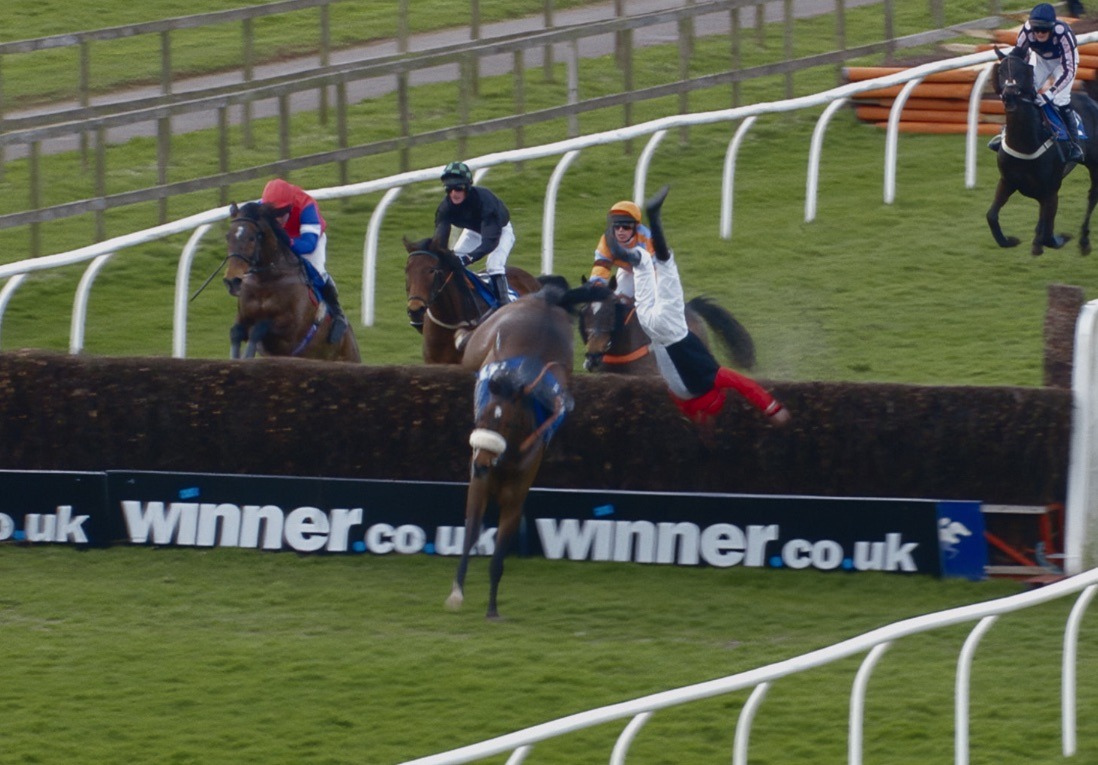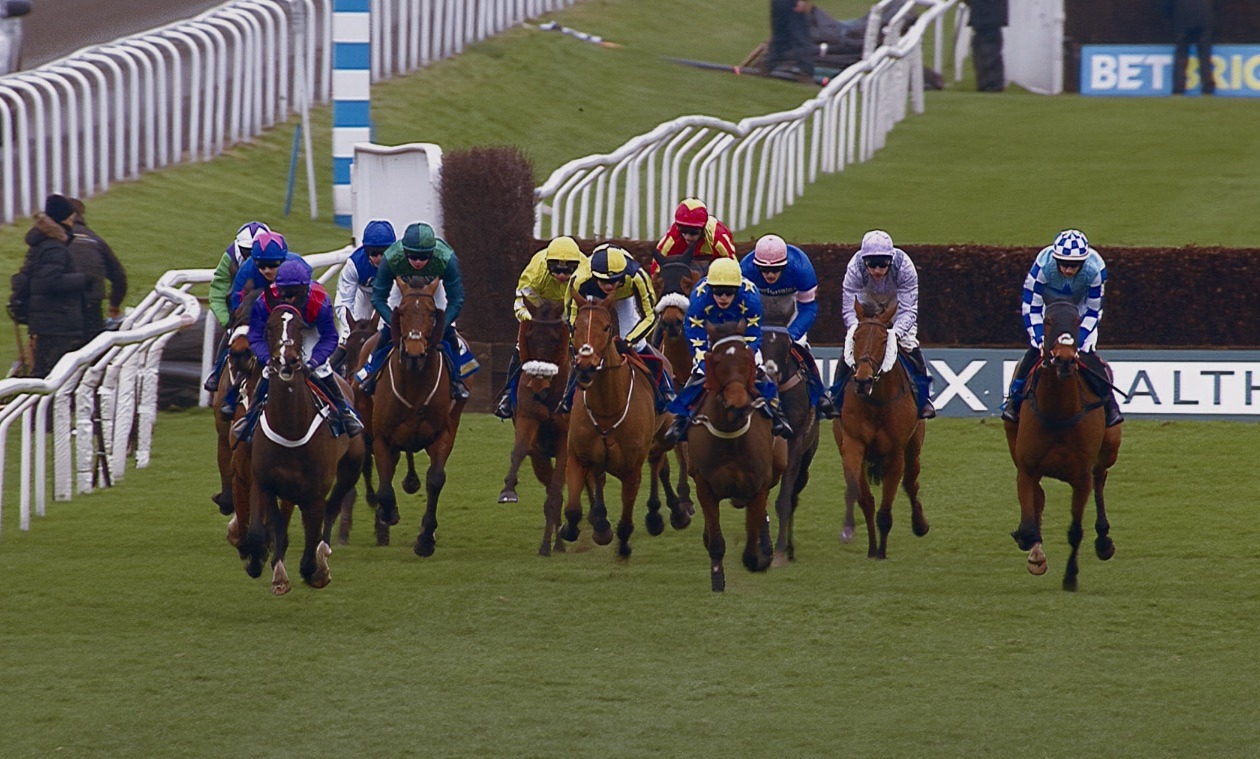Exclusive Access to Competitive Jump Racing
A brand new ITV documentary, Champions: Full Gallop, is set to give horse racing fans an inside look into the world of competitive jump racing. Viewers will get to experience the highs and lows of the sport with behind-the-scenes access to the most dramatic moments.
Prime Time Slot and Streaming Availability
The six-part series will air on ITV1 over the summer in a primetime slot, with episodes also available for streaming on ITVX. This in-depth look at jump racing aims to captivate audiences with its insider perspective.
Following in the Footsteps of Drive to Survive
Champions: Full Gallop hopes to emulate the success of Netflix's F1 documentary Drive to Survive, which revolutionized the way viewers engage with the sport. The production company, South Shore, has been granted full access to capture the intense drama of jump racing, from the weighing rooms to the stables.
Unprecedented Access to Racing Areas
From the Cheltenham Festival to the Grand National, viewers will be immersed in some of the biggest fixtures on the racing calendar. The documentary will also delve into the battle for champion jockey and trainer, offering a unique behind-the-scenes look at the sport.

Personal Stories and Helmet-Mounted Cameras
Not only will viewers witness the on-track action, but they will also be taken into the personal lives of jockeys, trainers, and owners. Helmet-mounted cameras will provide a jockey's point of view, giving audiences a truly immersive experience.
Timing Couldn't Be Better
With the iconic Grand National set to take place this Saturday, the documentary comes at a perfect time. Audiences will be on the edge of their seats as Corach Rambler aims to secure another victory at Aintree. Don't miss out on this inside look at the world of horse racing!
Frequently Asked Questions
How important is a racing horse’s lineage?
Pedigree is a good indicator of potential but it’s not the only factor that determines a horse’s performance. Although a horse’s lineage can indicate an inherited aptitude for endurance or speed, other factors, such as health and temperament, are also important. Good training can maximize a horse’s natural abilities and even allow it to outperform others with more impressive pedigrees.
What is the best diet for a race horse?
A racehorse diet must be of the highest quality and balanced precisely to meet their energetic requirements for training and racing. It is a combination of hay of the highest quality, grains, such as barley or oats, and commercially-prepared feed for racehorses. A diet that is rich in essential vitamins, minerals and nutrients will support the horse’s health and help them perform at their best.
Do different breeds of horses require different training methods?
It is true that race training can differ for different horse races, due to the differences in breed characteristics and distances. Thoroughbreds are often associated with flat-track racing over long distances. They receive different training than Quarter Horses who specialize in sprinting. Each breed needs a unique approach that is tailored to their physical and behavior traits.
What is the age at which a horse should begin racing training?
Although horses can begin basic training at a young age, they usually start more intensive race training and conditioning around the age of two. This is when their bodies are mature enough to handle the stresses of the track while still being young and adaptable for the learning process. However, timing will vary depending upon the horse’s individual temperament and developmental stage.
What is the first training step for a racehorse?
Breaking is an important part of the initial phase of training racehorses. This involves the horse becoming accustomed carrying a bridle, saddle, and weight of a person. During the early sessions, it is important to use patience and gentle handling to help the horse become comfortable with the human interaction and equipment that will be worn throughout its racing career.
Is it essential for a horse to wear a particular type of shoe when racing?
Racing plates are thinner and lighter than normal horseshoes. These plates provide the necessary traction on the racetrack while minimizing weight. A racehorse-trained farrier will fit and select the right shoes for each horse based on its hoof shape and the racing surface.
Statistics
- The average cost to train a thoroughbred racehorse for one year can exceed $50,000, accounting for expenses related to training, boarding, and veterinary care.
- Statistically, less than 1% of thoroughbred foals born each year will go on to win a stakes race.
- Research has found that a racehorse’s stride length can increase by up to 7% following specific strength and conditioning programs.
- The majority of racehorses in training are subject to an exercise regimen that includes being ridden six days a week.
- Approximately 70% of a racehorse’s diet consists of forage, with the remainder made up of grains and supplements to meet their high-calorie needs.
- The Injury Database from The Jockey Club reports that synthetic racing surfaces have a lower horse fatality rate than dirt tracks, with a statistically significant difference of 1.2 fatalities per thousand starts on synthetics compared to 2.0 on dirt tracks.
External Links
grayson-jockeyclub.org
bloodhorse.com
britishhorseracing.com
jockeyclub.com
horseracing.com
racingpost.com
How To
How to Educate Your Racehorse in Racing Strategies
Educating a racehorse on racing strategies requires a combination of trackwork and guidance from an experienced jockey. Practice gate starts, pace, positioning and responding to different tempos in a race. Play different race scenarios in order to develop adaptability, and to expose the horse to competitive dynamics. A well-instructed horse is able to execute strategic moves and pacing changes as directed by their rider, greatly influencing the outcome of a race.

